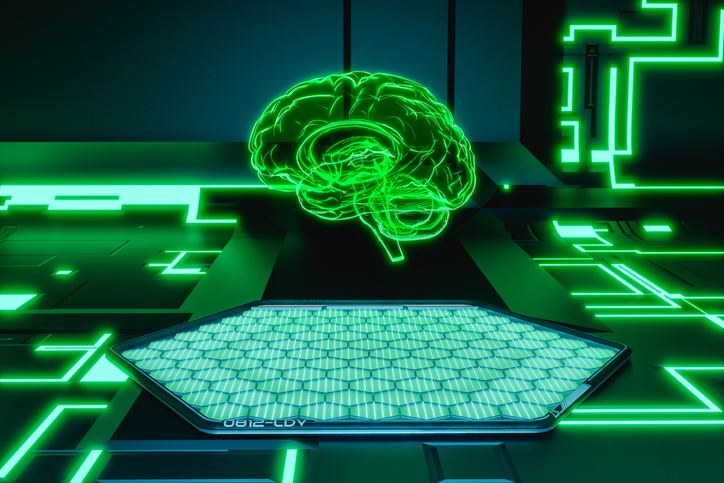
Source: Daniel Megias / Getty
As Black folx, we know that racial disparities in healthcare have plagued the United States for centuries. Black communities face significant hurdles in accessing mental healthcare, leading to underdiagnosis, mistreatment, and poorer health outcomes. This lack of access stems from historical distrust of the medical system, cost concerns, and a shortage of culturally competent providers. Additionally, people of color are more likely to be misdiagnosed or receive inaccurate treatment.
Artificial intelligence (AI) has emerged as a potential solution to improve access to mental healthcare. AI-powered chatbots, like ChatGPT’s Black Female Therapist (BFT), offer 24/7 support at a lower cost than traditional therapy. This could be a game-changer for those struggling to find affordable care. However, the potential for AI to exacerbate existing issues is a concern.
For one, AI algorithms are only as good as the data they’re trained on. Biased healthcare data can lead to biased AI, perpetuating existing racial disparities. Additionally, AI chatbots, even those designed for specific demographics, may struggle to capture the nuances of Black experiences, traditions, and spirituality. This lack of cultural sensitivity could prevent users from feeling understood.
A recent study highlights this risk. It found that AI analyzing social media may pick up depression signals in white Americans but miss them in Black users. Experts acknowledge this challenge. While Dr. Jose Hamilton, creator of BFT, believes AI can be culturally sensitive with proper design, others emphasize the irreplaceable role of human therapists.
“Humans need humans. And to me, therapy is a relational relationship. It’s why I physically have a room for people to come and visit,” psychotherapist Keeley Taverner told Refinery29’s Unbothered in March. For some people, I would suggest [AI therapy] may be helpful as a starting gate [into therapy]. But, let’s be frank, the reality is the complexities of humanity are something you can’t replicate. I don’t believe you can replicate it in that format.”
If AI is to be effective, it needs to be designed by diverse teams that include Black mental health professionals and users. Additionally, constant evaluation and updates are necessary to ensure cultural sensitivity and mitigate bias.
There are positive signs for Black healthcare, however. TikToker Samantha’s 14-year-old daughter, Sophie, created an AI chatbot focused on mental health. Her creation counters negative self-talk with positive affirmations and exercises in self-awareness and boundary setting. This is significant considering the rising suicide rates among Black youth, as reported by the CDC. There’s promise on the physical health side as well. Researchers trained a new algorithm to analyze knee X-rays for arthritis patients. Interestingly, the AI program proved more effective in diagnosing pain in Black patients compared to human radiologists.
The most effective approach might lie in combining AI’s capabilities with the expertise of culturally competent therapists. Such integration has the potential to expand access to mental healthcare for Black communities while fostering better treatment results. However, the long-term impact of AI in mental health delivery remains to be seen.
Steph R. Long is a Chopra-certified Ayurvedic health instructor, meditation instructor, and well-being coach. She’s also the founder of holistic wellness and coaching company SRL Well-Being and the former Deputy Director of Enterprise for Refinery29 Unbothered, where she oversaw health, wellness, and spirituality content. As a queer Black wellness practitioner who strives toward inclusivity, Steph centers BIPOC and QTBIPOC, who are often underserved by the wellness industry. Her commitment is to help everyone rediscover their inner wisdom, empowering each of her clients to cultivate self-awareness and lead vibrant, purposeful lives.
DON’T MISS…
Low-Cost Ways to Practice Self-Care & Maintain Your Mental Health
How Ayurveda Can Help You Elevate Your Wellness Routine
Switching Up Your Daily Routines Could Change Your Life—Here’s How
The Digital Divide In Black Mental Health: Can AI Bridge The Gap?
was originally published on
elev8.com


